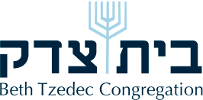Week’s End Reflection: Ki Tavo and a New Song of Prayer
In this week’s parashah, Ki Tavo, the Israelites are commanded to bring their bikkurim—their first fruits—to the Temple. With baskets in hand, they recite a declaration of gratitude: “Arami oved avi—My father was a wandering Aramean.” It is not just an offering of produce; it is an offering of story, memory, and voice. The ritual frames the entire journey of the people, from slavery to freedom, wandering to rootedness, scarcity to blessing.
The Torah reminds us that faith is never abstract. It must be voiced, sung, enacted. We do not simply believe—we declare. We do not simply receive blessing—we give thanks. The covenant comes alive when words and actions meet.
This theme flows beautifully into our prayer life, especially as we prepare for the Days of Awe. Every time we begin the Amidah, our most intimate prayer, we recite:
אֲדֹנָי שְׂפָתַי תִּפְתָּח, וּפִי יַגִּיד תְּהִלָּתֶךָ
Adonai, open my lips, that my mouth may declare Your praise.
The verse, from Psalm 51, is a personal bikkurim. Just as the farmer brings the fruit of his land, we bring the fruit of our souls—the words of prayer, the music of our hearts. We acknowledge that without God’s help, even our ability to pray would be stilled.
This year, we are blessed to embody this teaching in a new way. Our artist-in-residence Aviva Chernick, together with our member, composer Ari Posner, has written a stunning new setting of Adonai S’fatai Tiftakh. It will be offered for the first time in our congregation during the High Holy Days. Voices will rise together—those of our new Hennick Family Senior Cantor, Chazzan Chaim Stern, and our beloved Cantor Ezer—blending tradition and innovation, memory and renewal.
Their voices, like the ancient declaration at the Temple, will carry our stories forward. Each note will invite us to bring our own “first fruits”: our gratitude, our fears, our hopes, our longing for healing and peace.
As Shabbat enters, Ki Tavo reminds us that the essence of covenant is this: to never let memory or blessing go unspoken. May our lips be opened, our voices lifted, and our hearts attuned to the new music of prayer.
Shabbat Shalom.





